Archive | Health RSS feed for this section
Agriculture and natural resources, Governance and public sector management, Health, Poverty, Social development and protection
 Economics, Finance sector development, Health, Social development and protection
Economics, Finance sector development, Health, Social development and protection
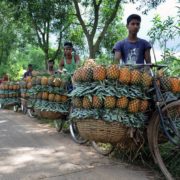 Governance and public sector management, Health, Sanitation, Social development and protection, Water
Governance and public sector management, Health, Sanitation, Social development and protection, Water
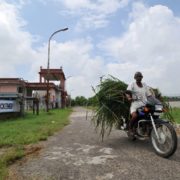 Governance and public sector management, Health, Industry and trade
Governance and public sector management, Health, Industry and trade
 Economics, Governance and public sector management, Health
Economics, Governance and public sector management, Health
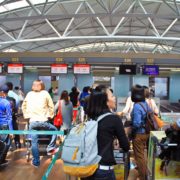 Capacity development, Health, Social development and protection, Urban development, Water
Capacity development, Health, Social development and protection, Urban development, Water
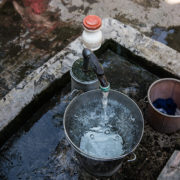 Economics, Health, Regional cooperation and integration
Economics, Health, Regional cooperation and integration
 Economics, Governance and public sector management, Health, Social development and protection
Economics, Governance and public sector management, Health, Social development and protection
 Economics, Finance sector development, Health
Economics, Finance sector development, Health
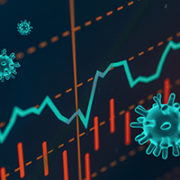 Health, Water
Health, Water

Rebooting food systems to achieve the unfinished agenda of global food security

Food insecurity continues to be a pressing issue worldwide, despite scientific innovation and technological advancements in agriculture. Therefore, food security continues to be at the center of the global development agenda. The burgeoning demand for food due to exponential growth in the world’s population and the mismatch between demand and supply due to factors such as climate change, loss of soil fertility, land degradation, water scarcity, food loss and waste, and inefficient distribution systems, have exacerbated the problem of food insecurity.
Remittance inflows giving resilience to Bangladesh’s rural economy amid COVID-19

While the World Bank has identified Bangladesh as one of only three big economies that had increases in remittance inflows in 2020, along with Pakistan and Mexico (Ratha et al. 2020), and remittances have long made up a substantial share of people’s income in the country, preliminary results from a recent study supported by the Asian Development Bank Institute (ADBI) finds surprising resilience for remittance inflows into the rural economy during the first wave of the coronavirus disease (COVID-19) pandemic in Bangladesh.
Top journal articles on sanitation reveal new policy insights

An examination of the published journal articles on development economics reveals a striking pattern—very few are devoted to the analysis of sanitation interventions and development. In a recent systematic review of all sanitation-related articles from the top-12 highest-ranking journals on development economics (Revilla et al. 2021), we attempt to understand the linkages between sanitation and development based on current qualitative and quantitative empirical work.
Rethinking the impact of the lockdown on micro, small, and medium-sized enterprises in the Philippines

The National Capital Region (NCR) and four provinces in the Philippines have returned to enhanced community quarantine (ECQ) since 29 March 2021 due to surging cases of the coronavirus disease (COVID-19). The ECQ is the strictest measure for prohibiting the movement of people for nonessential purposes and strengthening curfews. The Philippine government moved to the ECQ, or lockdown, to contain the spread of COVID-19 quickly after the pandemic was identified in March 2020.
Can closing borders shut out new COVID-19 strains?

In fighting the coronavirus disease (COVID-19) pandemic and, in particular, the new strains that are emerging, many countries have adopted the dual approach of closing borders and increasing domestic surveillance. This might be overkill. In fact, the latter might suffice.
Making citywide inclusive sanitation a reality through capacity development
By Abishek Narayan, Christoph Luthi, Ma. Laarni Revilla, Deepanshu Agarwal and KE Seetha Ram. Posted January 18, 2021

Over a billion people across Asia and the Pacific still lack access to basic sanitation services (JMP 2019). Most low- and middle-income countries in Central Asia, South Asia, and East Asia still do not have safely managed sanitation services. Further, only a fifth of the countries practicing open defecation are on track to eliminate this practice around the world. Clearly, business as usual in the sanitation sector has not solved this challenge in the last several decades.
Toward an ASEAN COVID-19 travel balloon

While financial markets have responded strongly to the emergency-use authorization of various coronavirus disease (COVID-19) vaccines in several countries, the economic impacts will take much longer to materialize. One reason for this is that vaccinating 60% or more of populations to achieve herd immunity will take time. Reaching herd immunity is critical given the possibility that those vaccinated may still be infectious, despite being immune to the disease.
Toward a robust economic recovery from COVID-19 in Asia and the Pacific

The coronavirus disease (COVID-19) pandemic has been a truly global shock to public health, causing one of the most severe global economic downturns since the Great Depression of the 1930s. Against this context, the 2020 ADBI Annual Conference brought together leading academics, think tank researchers, and policy makers to discuss the impacts of COVID-19 and its policy implications, with a focus on Asia and the Pacific.
COVID-19 and policy responses through the lens of global asset markets and capital flows

The coronavirus disease (COVID-19) pandemic and the resulting lockdowns have led to an unprecedented economic contraction and turbulence in financial markets, which initially caused the largest ever outflows of portfolio capital from emerging market economies (EMEs). Globally, governments have responded to the crisis with substantial fiscal stimulus packages. In addition, central banks around the world have eased monetary policies, with many EME central banks also implementing quantitative easing (QE) measures for the first time.
COVID-19 reminds us to prioritize “water supply, sanitation, and hygiene” (WASH) to reduce child mortality

The coronavirus disease (COVID-19) has registered 959,116 deaths worldwide as of 21 September 2020. While the number is alarming, it is still not large compared with the 5.2 million children who died due to various causes in 2019, according to UNICEF. COVID-19 reminds us how much child mortality continues to be a significant challenge for global health and the global economy. In addition to the loss of human lives, the economic consequences are also significant.


Search
Subscribe / Connect to Asia Pathways
Subjects
- Agriculture and natural resources
- Blog
- Capacity development
- Climate change
- Economics
- Education
- Energy
- Environment
- Finance sector development
- Gender
- Governance and public sector management
- Health
- Industry and trade
- Information and Communications Technology
- Infrastructure
- Miscellaneous
- Population
- Poverty
- Private sector development
- Regional cooperation and integration
- Sanitation
- Social development and protection
- Transport
- Uncategorized
- Urban development
- Video Blog
- Water
Recent Posts
- Facilitating high-speed rail knowledge transfer between Japan and India
- Artificial intelligence: A new driver for inclusive growth and development?
- Increasing trust in cross-border e-commerce and artificial intelligence
- Enhancing access to maternal and newborn healthcare in developing Asia
- Can electric vehicles lead the way to a sustainable future?




Recent Comments